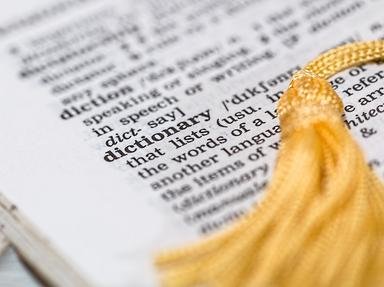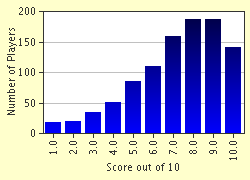Quiz Answer Key and Fun Facts
1. Based on its alternative definition, which of these names for a person of the male persuasion could alternate for 'Spike'?
2. Is it true that if you are a practicing bricoleur (in the current sense of the word in English), your main occupation involves the laying down of bricks (as in masonry)?
3. One of the most magnificent 'B' words has got to be 'brimstone'. Is there anything better than listening to a fire and brimstone speech delivered by one's favorite demagogue?
More importantly, for the purposes of this quiz at least, to which chemical element does the word brimstone have a connection?
4. Surely no 'B'-word quiz would be complete without the inclusion of the wonderful 'behemoth', a word we have received straight from the Bible itself. Which of these adjectives would best describe the nature of a behemoth, given its current English usage?
5. One of the absolutely essential words one must have in his or her insult arsenal is 'buffoon', another word for clown, or, if you prefer a more crude and blunt synonym, idiot. Which language ultimately provided us with this wonderful term?
6. I can imagine that it would be absolute bedlam if I did not include that word (bedlam) somewhere in this quiz. After the name of what sort of institution was the word bedlam originally derived?
7. This single 'B' word has two entirely different meanings, depending on the context of its usage. The first meaning is of a round, felt hat with a domed crown, worn by men, while the second meaning refers to a certain participant in cricket, skittles and a couple other sports. Which 'B' word may aptly be applied in both senses described above?
8. One of the most interesting and beautiful 'B' words in the English language comes to us from the Italian 'burla', meaning 'mockery'. I am, of course, referring to the word burlesque. Which of these non-'B' terms best resembles its meaning?
9. Which of these oddball 'B' words is used to describe a non-existent object of fear?
10. Some of the great eponyms of the English language happily happen to be 'B' words. Which of the following 'B' words is not derived from the name of a person, and hence not an eponym?
Source: Author
thejazzkickazz
This quiz was reviewed by our editing team before going online.
Any errors found in FunTrivia content are routinely corrected through our feedback system.

